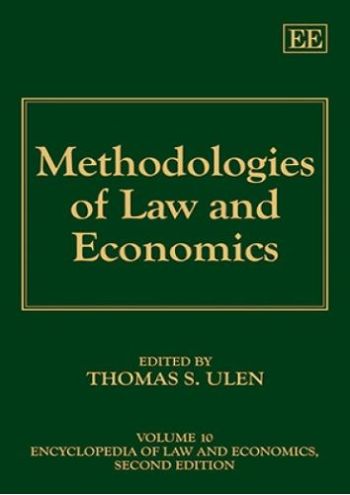
When law and economics first appeared, it was a relatively straightforward application of microeconomic theory to legal issues. However, in the past 35 years the field has expanded its toolkit dramatically. This latest volume in the acclaimed Encyclopedia of Law and Economics maps the methodological territory in law and economics with a series of entries by distinguished scholars. These entries introduce and evaluate the law and economics toolkit, including: the roles of microeconomic theory, public choice, social choice, history, complexity theory, philosophy, comparative law studies, behavioral economics and empirical techniques. Each one introduces a methodology, demonstrates its importance to the field of law and economics and assists the reader in navigating the leading literature on that topic.
This volume will be an essential reference for all those who research in or teach law and economics, law and society or empirical methods in law.